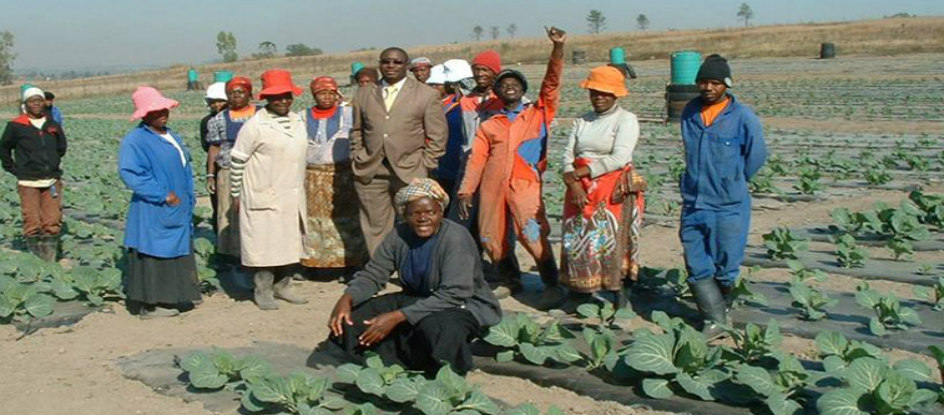Just as the land of Israel flourished with the return of the Jewish people, the State of Israel is now helping other nations thrive. What exactly have SJW done to help the world?

The Jewish holiday of Tu BiShvat, celebrated today, marks the revival of nature. In Israel, Tu BiShvat is celebrated as an ecological awareness day, and trees are planted in celebration. Over a million Israelis take part in Tu BiShvat tree-planting activities annually. This, a custom developed during the early days of the Zionist movement to popularize the land reclamation and afforestation efforts in the land of Israel.
Over the past 100 years, Israel has gained vast knowledge and expertise in agriculture, reforestation and hydrology, developed as a consequence of necessity. Modern Israel continues quietly to extend its knowledge, including drip irrigation, water treatment – such as desalination and the recycling of wastewater – to Africa, Asia, and even California. Just as the land of Israel flourished with the return of the Jewish people, so too is the State of Israel now helping other nations to thrive.
While so-called social justice warriors rant and demonstrate against Israel, the question that no one asks is, what have these perpetual protesters ever done for the environment, and the truly poor of this world? The answer is – very little. Social justice war is an exercise in futile moral narcissism, the focus of which is to make social justice warriors feel good about themselves.
Israel, on the other hand, has been helping other nations flourish for decades, even when the reborn modern Jewish state itself was still very poor. Israel’s official international development cooperation program, Mashav, was launched in late 1957. Its aim was sharing with the rest of the developing world the know-how and technologies which provided the basis for Israel’s own rapid development. Israel has been, and effectively still is, a laboratory for development solutions.
Israel cultivated a strong relationship with Africa from the earliest beginnings, when the newly decolonized African nations emerged. Taking the relevant expertise it accumulated during its own development experience as a young country facing similar challenges, Israel sent thousands of Israeli experts in agriculture, hydrology, regional planning, public health, engineering, community services, medicine and scores of other fields throughout Africa between 1958 and 1973. Thousands of Africans trained in Israel during the same time (So much for Israeli “apartheid.”). Unlike Europeans, who lived in their own, segregated compounds, the Israelis lived among the Africans they came to assist on the African continent (again, so much for Israeli ”apartheid.”).
Former Prime Minister Golda Meir wrote in her 1975 memoirs, “My Life,” that like Africa, “… we had shaken off foreign rule; like them, we had had to learn how to reclaim the land, how to increase the yields of our crops. … We couldn’t offer Africa money or arms, but on the other hand we were free of the taint of the colonial exploiters because all that we wanted from Africa was friendship. Let me at once anticipate the cynics. Did we go into Africa because we wanted votes at the United Nations? Yes, of course that was one of our motives — and a perfectly honorable one — which I never … concealed either from myself or from the Africans. But it was far from being the most important motive. … The main reason for our African ‘adventure’ was that we had something we wanted to pass on to nations that were even younger and less experienced than ourselves.”
The votes in the UN did not materialize, despite Israel’s heavy involvement on the African continent. Africa habitually votes as a bloc against Israel in international forums, such as the UN, but as Golda wrote, “We did what we did in Africa not because it was just a policy of enlightened self-interest … but because it was a continuation of our own most valued traditions and an expression of our own deepest historic instincts”.
Israel has renewed and deepened its relations with many African countries since Prime Minister Benjamin Netanyahu visited sub-Saharan Africa in 2016 for the first time since former Prime Minister Yitzhak Shamir visited in 1987.
Israel’s world expertise in hydrology has not only made it the go-to expert for countries on the African continent. Israel is also helping places such as California with its water problems, and Israeli companies are helping the state deal with issues such as water storage, water management, water treatment, water recycling and water leak detection solutions.
Meanwhile, Cape Town, South Africa, is about to become the first city in the world to run out of water shortly. Despite this,t Israeli offers to help Cape Town with the looming disaster have not been taken up by the Cape Town authorities. They apparently prefer to let their citizens run out of water, rather than accept Israeli help.
Israel became a world leader in hydrology and agriculture for a specific reason. Only after the Jewish people returned from its imposed exile to the now arid land, which had been laid waste during centuries of foreign occupation by the Ottoman Empire, which neglected it completely, (apart from taxing the remaining Jewish citizens so that they could barely subsist) did the land of Israel begin to gradually bloom again.
The Jews literally brought the land back to life again, replanting and reforesting it – the way only a people that truly loves the land, belongs to the land, just as the land belongs to them, can do.
____________________
Judith Bergman is a columnist and political analyst
[Find this article interesting? You can find more in depth articles on Israel and the Middle East @en.mida.org.il]




by blooming the dessert is it gonna solve the conflict?
It is more than all the Arab countries combined have succeeded in doing.